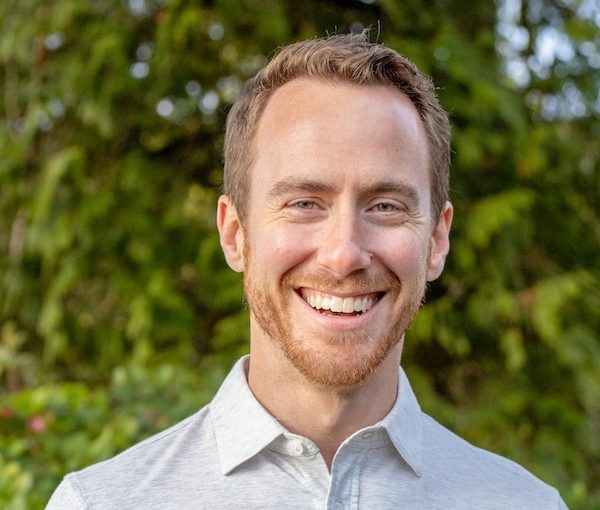Dr. Noah Alexander was the keynote speaker at the Jewish Seniors Alliance Spring Forum on March 21. (photo from medicalmentorcommunity.com)
Can I Trust That? Evaluating Health Information Online was the topic of the Jewish Seniors Alliance Spring Forum, held virtually on Sunday, March 21.
Gyda Chud, co-president of JSA, welcomed about 100 people to the afternoon event. She reminded attendees of the four foundational elements of JSA: outreach, education, advocacy and peer support. She then turned the mic over to Tamara Frankel, a member of the program committee, to introduce the guest speaker, Dr. Noah Alexander.
Alexander is a practising emergency physician at Vancouver General Hospital. Although he usually works on the front line, he also works to empower patients. He does this through his role as the associate director of digital health literacy at the InterCultural Online Health Network. This organization helps members of many different communities understand and manage their chronic health conditions.
Alexander began his talk by stating that his goal was to provide a systemic approach to health education. He highlighted many elements, beginning with the question, How do you know who to trust in this information age?
When using a search engine (he likes to use Google Chrome), use key words or short sentences to find information. When looking at the search results, consider whose website it is, their credibility and the value of the content. Credibility and content are key to the whole process. For example, who wrote the article or blog, and are they known and respected? How old is the entry? Is it relevant to the question you’re asking? Is it peer-reviewed or is the writer or organization accredited? Check the site’s URL: for example, .com entities are usually commercial and profit-based, whereas URLs ending in .org, .gov and .edu are not-for-profit.
Check both the credentials of the authors and whether they are being paid and, if so, by whom. If the entry has advertisements, there is likely to be a bias involved, Alexander warned. He said people should not trust a Wikipedia entry for important information, as anyone can add their own comments to the post. Rather, use a credible health website such as the BC Centre for Disease Control, HealthLink BC, Vancouver Coastal Health, or any other government agency.
If an article’s page contains links to other websites, there could be a conflict in that they may be selling merchandise. Red flags should be raised when cures are being offered and sold online, said Alexander. Do not trust simple, non-medically proven solutions, or advice contained in group chats. Make sure that there is a privacy policy.
Alexander then presented an interactive quiz based on his presentation, after which Chud thanked him for clarifying the elements involved in seeking accurate health information online. She also summarized the questions attendees posted in the chat and Alexander answered a number of them.
The answer to the question posed about health information online – “Can I Trust That?” – is yes … if you follow Alexander’s suggestions.
Shanie Levin is program coordinator for Jewish Seniors Alliance and on the editorial board of Senior Line magazine.

